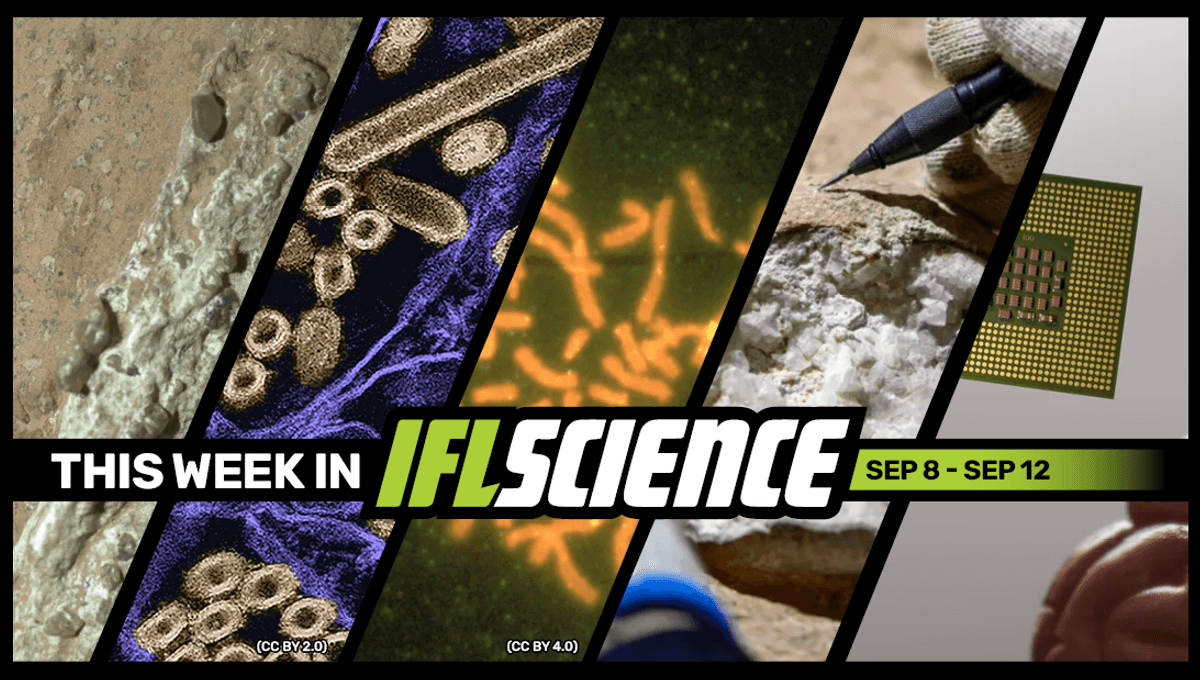-
Новости
- ИССЛЕДОВАТЬ
-
Страницы
-
Статьи пользователей
-
Форумы
Martian Mudstone Has Features That Might Be Biosignatures, New Brain Implant Can Decode Your Internal Monologue, And Much More This Week

Martian Mudstone Has Features That Might Be Biosignatures, New Brain Implant Can Decode Your Internal Monologue, And Much More This Week
This week, scientists may have found a universal weak spot for nearly every tested flu strain using a carefully designed triple antibody cocktail, an animal with 229 pairs of chromosomes is officially declared to have the most chromosomes of any animal, and, for the first time, an 85-million-year-old dinosaur egg has been dated using an “atomic clock for fossils”. Finally, 10 years after the discovery of gravitational waves, we take a look at the unfolding new astronomical revolution.
The rest of this article is behind a paywall. Please sign in or subscribe to access the full content. An international team of researchers reports new insights into observations from NASA’s Perseverance rover. Last year, the rover sampled mudstone with peculiar mineral formations. New analysis provides further peculiarities in the sample, making the case for possible biosignatures. Read the full story here Researchers at The Jackson Laboratory (JAX) may have just cracked one of medicine’s biggest challenges: how to stop influenza in its tracks, no matter the strain. A carefully designed triple antibody cocktail protected mice from nearly every flu strain tested, including highly dangerous avian and swine variants. Read the full story here It’s official: the animal with the highest number of chromosomes is the Atlas blue butterfly, boasting a record 229 pairs. This is a pretty unusual finding since many of its closest relatives have just 23 or 24 pairs. It had long been suspected that this elusive butterfly may hold the record for the most chromosome pairs in the animal kingdom, but scientists have now sequenced its genome for the first time, confirming the claim. Read the full story here What could be more exciting than finding a dinosaur egg? The tiny shells from which some of the largest animals ever to walk the Earth emerged, incredible stuff! Thing is, it’s not always easy to work out what you’re dealing with when all you have to study is the egg itself. In fact, it’s not even very easy to work out how old they are. Read the full story here Researchers from Stanford University have developed a brain-computer interface (BCI) that can decode users’ “inner speech” and convert it into words. The device successfully allowed four paralyzed patients to communicate and represents a massive breakthrough in this field, although its ability to tap into people’s thoughts raises a number of concerns about mind-reading and data privacy. Read the full story here Ten years ago, on September 14, 2015, at 9:50 am UTC, our planet was compressed and then stretched by a tiny fraction of a nanometer for a handful of milliseconds. Earth has experienced this since its birth, 4.5 billion years ago; gravitational waves have existed since the beginning of the universe. This one, though, was special. For the first time, the hominins that now occupy every landmass on its surface saw it happen. Read the full story here Have you seen our e-magazine, CURIOUS? Issue 38, September 2025, is available now. This month, we asked, “Are Space-Made Medicines The Future?” – check it out for exclusive interviews, book excerpts, long reads, and more. PLUS, the We Have Questions podcast – an audio version of our coveted CURIOUS e-magazine column – continues. In episode 12, we ask, “Do Humans Have Pheromones?” The Big Questions podcast has returned, and we’re continuing season 5 with episode 7’s big question: Are We In The Anthropocene?Create an IFLScience account to get all the biggest science news delivered straight to your inbox every Wednesday and Saturday.
Exciting Martian Mudstone Has Features That Might Be Considered Biosignatures
With A New Drug Cocktail, Scientists May Have Finally Found Flu’s Universal Weak Spot
With 229 Pairs, This Beautiful Animal Has The Highest Number Of Chromosomes Of Any Animal
85-Million-Year-Old Dinosaur Eggs Dated Using “Atomic Clock For Fossils” For The First Time
New Brain Implant Can Decode Your Internal Monologue, Raising Fears Of Mind Reading
TWIS is published weekly on our Linkedin page, join us there for even more content.
Feature of the week:
The Unfolding New Astronomical Revolution – Gravitational Waves Discovery Turns 10
More content:


